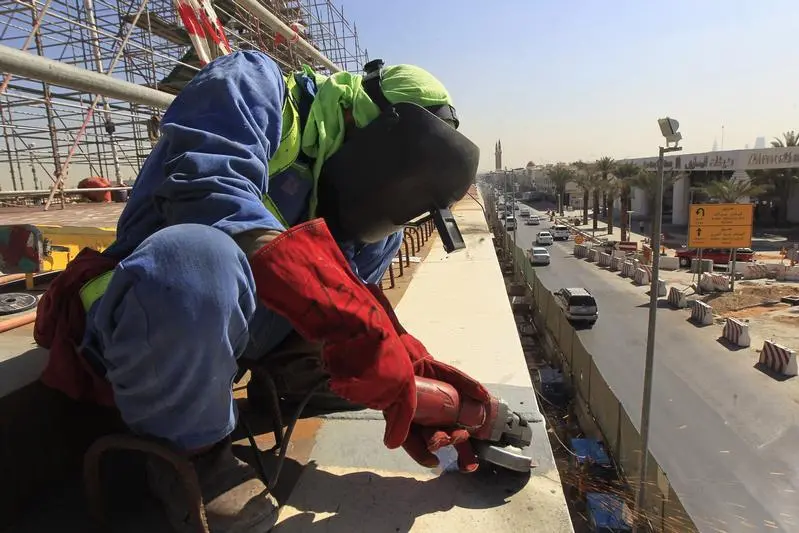PHOTO
Construction costs across the Middle East and North Africa (MENA) markets are set to increase after two difficult years during which project spending dropped by 40 percent, according to construction company Mace.
The UK-headquartered firm, which is jointly managing the project to build the new 1km-high Jeddah Tower in Saudi Arabia, said that 2018 is "expected to see a recovery in tender prices, driven in part by an uptick in activity and in part by growing costs" in a new Tender Cost Update for the MENA region, which was published on Monday.
The firm said that following recent announcements such as the $500 billion NEOM project planned for Saudi Arabia, the kingdom's pipeline of projects planned and under development has increased by 27.3 percent since December 2016, bringing the total to over $1.44 trillion.
Saudi Arabia had a 38 percent share of projects planned or underway in the region at the end of 2017, according to Mace, making it the biggest market. It was followed by the United Arab Emirates (23 percent share), Iraq and Iran (9 percent each).
Mace predicts that the biggest increase in tender prices in the Gulf is expected in Saudi Arabia, set to grow by 2.79 percent this year, compared to 2.54 percent last year. The next-biggest growth in prices is expected in Oman, where increased investment in oil & gas projects has allowed contractors to push for higher prices.
In a statement accompanying its report, Fergus Rossiter, a director of cost consultancy at Mace, said: “Increased project activity is anticipated to drive up tender prices across MENA markets, as contractors see their order books fill up again after the recent slowdown. However, the new economic reality means bringing financing to the table is becoming increasingly important, as contractors compete for diminishing government funding.”
The report said that financing "remains the biggest challenge for construction projects in the region", with government spending slashed and private sector investors wary of market uncertainty.
In its GCC Powers of Construction report published last month, accountancy firm Deloitte said that investment into projects both by government and private sector bodies was "less aggressive" than it had been in recent years.
In a press release accompanying the report, Kosta Georgiadis, Deloitte Middle East's head of debt advisory, said that although the region's banking system remained relatively liquid, banks were being conservative in terms of project funding.
“Local banks are able and willing to avail financing to feasible projects based on acceptable debt and equity levels (usually 60-70 percent loan-to-construction arrangements), provided that developers are capable and prepared to stand behind the project with additional equity and debt servicing support should the project experience any unanticipated delay or softening in revenues,” he said.
Yet despite improving sentiment, the amount by which contractors can raise prices will remain below inflation as competition remains too fierce for firms to pass on the full impact of their own input costs.
Mace's report stated that consumer price inflation is likely to hit 4.96 percent in Saudi, fuelled by the impact of the introduction of value-added tax (VAT) and subsidy cuts, while inflation in Qatar is set to rise by 4.85 percent due to increased costs felt as a result of the blockade imposed by Bahrain, Egypt, Saudi Arabia and the United Arab Emirates in June last year. The quartet accused Qatar of supporting terrorism - a charge that it denies.
In January, construction consultancy Thomas & Adamson, warned that construction firms in the UAE could also face difficulties following the introduction of VAT - thus far, Saudi Arabia and the UAE are the only two Gulf Cooperation Council countries to have introduced VAT.
Zander Muego, a partner at the firm, said in a statement that the introduction of VAT "is likely to exacerbate" a problem felt by many firms that have to wait months for payment for work on which they have already incurred costs.
(Writing by Michael Fahy; Editing by Anoop Menon)
(michael.fahy@thomsonreuters.com)
Our Standards: The Thomson Reuters Trust Principles
Disclaimer: This article is provided for informational purposes only. The content does not provide tax, legal or investment advice or opinion regarding the suitability, value or profitability of any particular security, portfolio or investment strategy. Read our full disclaimer policy here.
© ZAWYA 2018





















